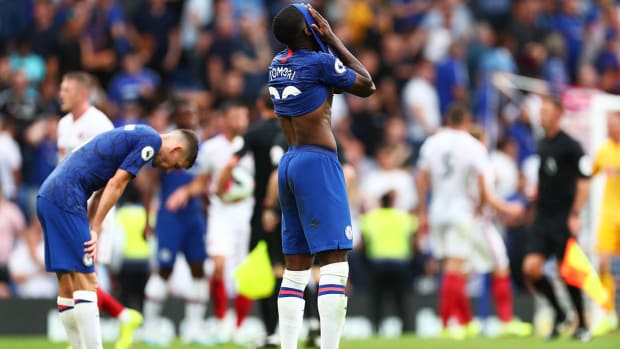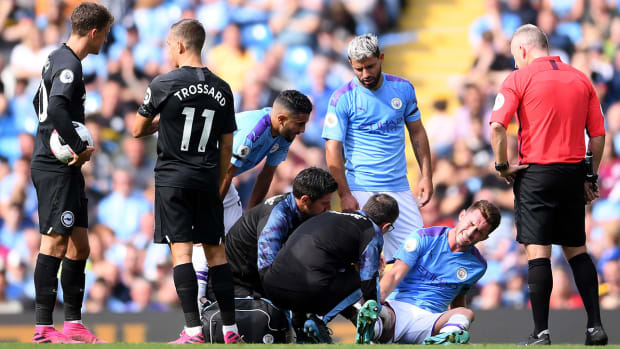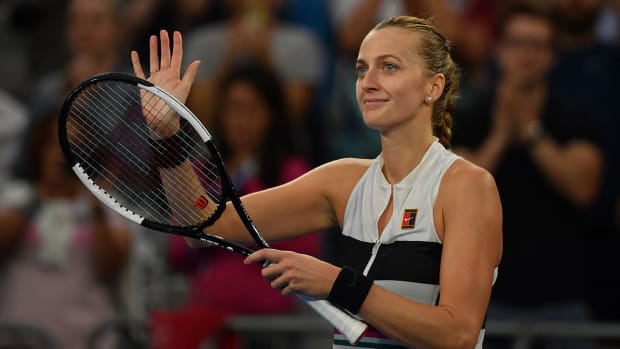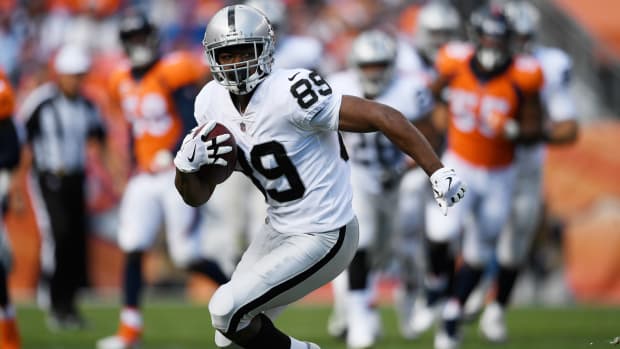Svindal out for season: Bad crashes on Streif spark debate
KITZBUEHEL, Austria (AP) Aksel Lund Svindal had all eyes on him once more after a World Cup downhill on Saturday, but this time not for the reason he wanted.
Having won all but one of the five previous downhills this season, the overall World Cup leader picked up a season-ending knee injury in a dramatic race on the Streif course.
Svindal and Austrian pair Georg Streitberger and Hannes Reichelt were all thrown off the course after catching a bump they could hardly see because of flat light on the Hausbergkante.
Svindal ruptured his anterior cruciate ligament and damaged a meniscus in his right knee, and underwent surgery in a clinic in Innsbruck later Saturday. He was expected to need up to nine months for recovery.
''I messed up my knee a little and about to go into surgery,'' Svindal wrote on his Facebook page. ''Kinda sucks in the middle of the winter, but thats life. Ups and downs and just gotta deal with whatever comes.''
Svindal, the 2007 and 2009 overall champion, returned this season from a year-long World Cup break after tearing an Achilles tendon. He won seven races and was leading four-time defending champion Marcel Hirscher of Austria by 107 points in the overall standings.
The damage to his knee turned our far worse than it initially seemed.
Shortly after landing in the safety netting, Svindal stood up and walked a few steps. The rescue helicopter was already up in the air but returned to its base as Svindal was brought down the hill by a snow scooter.
Only a medical check in the hospital hours later revealed the seriousness of Svindal's injury.
Streitberger sustained similar damage to his right knee and also needed surgery, while Reichelt escaped with a bruised bone in his left knee.
The crashes sparked a debate about the conditions of the race, which was first delayed by an hour because of snowfall and high wind, and then called off after just 30 starters as the cloudy weather limited visibility. Peter Fill of Italy was leading and declared the winner.
FIS race director Markus Waldner called the crashes ''unfortunate.''
''There was no visibility problem when we started the race,'' Waldner said. ''The snowfall had stopped and the wind had calmed down.''
However, Waldner acknowledged that ''the visibility was quite flat later on.''
''We have some rolls in here,'' he said. ''It was really difficult for the racers to see these rolls and probably this caused the mistakes. We know from this section, no mistake is allowed. It's the toughest section. The slope was good there.''
After 30 racers, Waldner consulted Hannes Trinkl, a former world downhill champion who sets the speed courses on the men's World Cup.
Trinkl advised him to cancel the race as he deemed the conditions too dangerous for the later starters, who are lower-ranked skiers with mostly less experience.
''In the end, for me, I could take no more responsibility for the young racers,'' Trinkl said.
Waldner added that ''visibility was flat. This was also the reason we decided to stop the race because it was getting worse and worse. For our feeling, the young racers after 30 were not safe enough.''
The race jury led by Waldner was firmly criticized by U.S. head coach Sasha Rearick, who is the spokesman for all coaches on the men's World Cup.
Rearick said he was ''surprised and disappointed'' by the decision to stop the race.
''The conditions for light have not gotten worse, it was actually getting better,'' Rearick said. ''It's the jury's decision to say it's doable or not doable, not whether the young guys can handle it or not. That is a decision for the coaches and the athletes.''
Norway head coach Christian Mitter didn't want to blame anyone for his main athlete getting injured.
''The top seven didn't have the best conditions,'' Mitter said. ''But you can't always shift the responsibility onto someone else. You have to be fair. Visibility was on its limit, but it was skiable.''
However, Peter Schroecksnadel said he called Waldner immediately after the Svindal crash and asked for the race to be canceled.
According to the president of the Austrian ski federation, the waves on the course were not extraordinary though racers could hardly see them anymore as the weather worsened.
Waldner said he saw no reason to call off the race at that moment.
''After the crashes, (the condition) was still good,'' the race director said, referring to the 30th and last starter who still posted the seventh fastest time. ''(Vincent) Kriechmayer showed it was still good enough to race.''
Crashes on the same location during training this week had already ended the season for Austrians Max Franz and Florian Scheiber.
''We were on the limit,'' Waldner said. ''I feel sorry for the Austrians but that's life on the mountain.''




